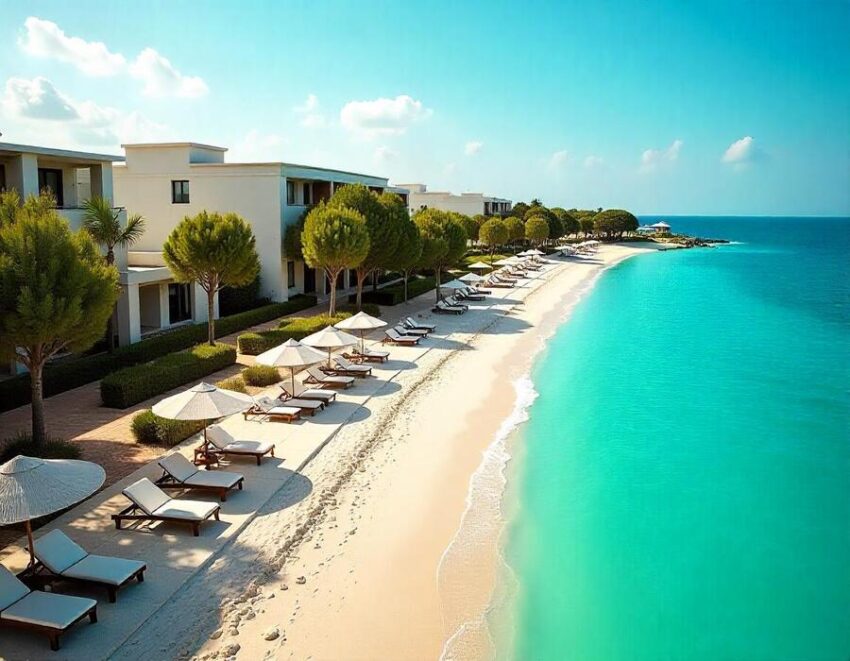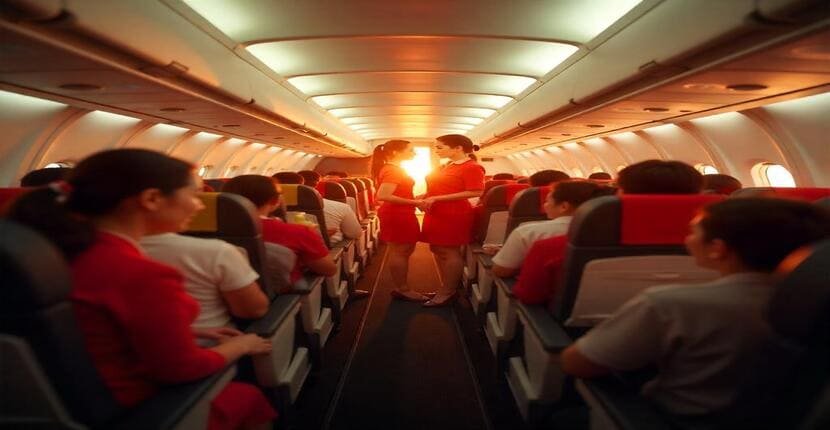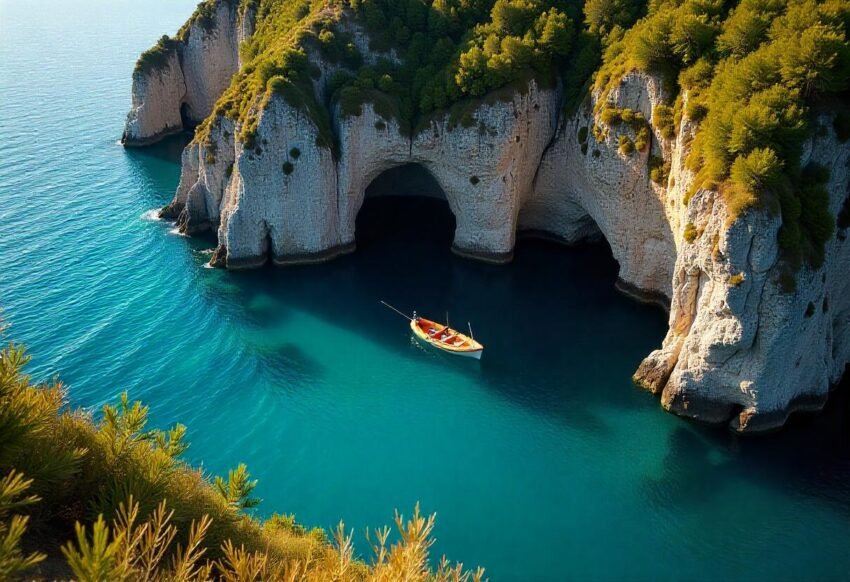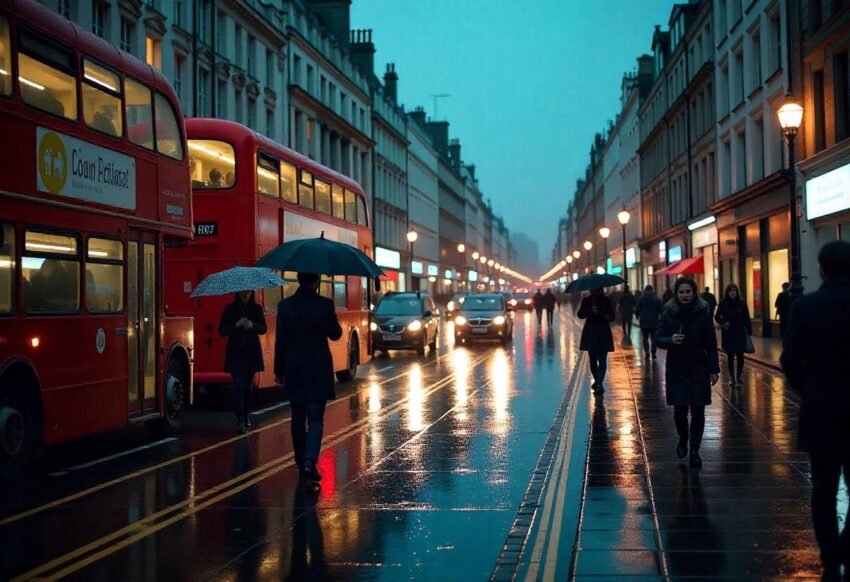Saturday, June 14, 2025

Spain’s iconic island of Majorca is facing a deepening travel crisis as the number of visitors from the United Kingdom continues to plunge. Once a favorite summer destination for British holidaymakers, Majorca is now grappling with a sharp decline in UK arrivals due to a mix of rising travel costs, changing tourist preferences, and growing competition from other Mediterranean hotspots. This unexpected downturn is hitting just as the island gears up for its peak season, sparking concern across the local tourism industry, which heavily relies on British travelers to sustain its summer economy.
Majorca Faces Deepening Decline in British Tourists as Summer Begins
Majorca, one of the most popular Balearic Islands, is experiencing a dramatic drop in British tourist numbers, as holidaymakers from the UK continue to avoid the Mediterranean destination. Once a favourite getaway for UK travellers, the island now finds itself grappling with a sharp downturn that has carried into the peak summer season.
The decline is not a sudden shock but rather part of a steady trend that has become more pronounced throughout 2024 and into 2025. According to the latest tourism data, the number of UK visitors to Majorca has plummeted significantly, raising concerns across the local hospitality and tourism sectors.
Tourist Numbers Reflect Worrying Trend
Recent figures reveal a concerning downturn across the board. While the island welcomed 95,074 Spanish tourists earlier in the year — itself a drop of 2.6% — the figures for UK arrivals were even more alarming. The number of British tourists recorded stood at only 18,874, representing a year-on-year decrease of 7.7%. Even more striking was January’s data, which showed a nearly 30% fall in UK visitors compared to the previous year, with the volume of travellers essentially halved.
As the summer holiday period kicks off, there is little sign of recovery. While Spain overall reported a modest dip of under 3% in UK arrivals, the decline in Majorca reached 6%, underscoring the specific challenges the island faces.
A Challenging April Despite Optimism
Expectations had been high for April, especially with Easter falling later in the month — a calendar shift that typically boosts holiday bookings. However, the anticipated surge failed to materialize from the UK market. Though other international arrivals helped buoy overall tourism figures, the shortfall in British travellers marked a troubling continuation of the decline seen in earlier months.
Industry experts noted that while other source markets showed some resilience, the UK’s absence was particularly detrimental given its historical importance to Majorca’s tourism economy.
Industry Leaders Express Concern
Pedro Fiol, president of the Balearic travel agency association Aviba, confirmed that local travel operators and hoteliers are increasingly anxious about the sustained downturn. He emphasized that the current levels of UK tourism are far below what the island needs to maintain a healthy economy during the high season.
Local businesses that once relied heavily on UK holidaymakers are now scrambling to attract alternative markets, though many acknowledge that replacing the sheer volume and spending power of British tourists will not be easy. British visitors have long played a central role in Majorca’s summer economy, booking extended stays, supporting hospitality venues, and spending significantly on leisure and shopping.
Possible Reasons Behind the Drop
Multiple factors may be contributing to this sharp decline. Rising costs, including airfare and accommodation prices, are pricing some UK tourists out of the Balearics altogether. Additionally, changing travel preferences and growing interest in alternative destinations could be playing a part. UK holidaymakers are increasingly exploring other Mediterranean destinations, such as Portugal, Turkey, or Greece, where they perceive better value for money and fewer tourist taxes.
There has also been growing discourse around “overtourism” and its impact on the island’s residents and environment. Some travellers may be responding to these narratives by choosing destinations perceived as more sustainable or less crowded.
Moreover, recent political and economic uncertainties in the UK — including fluctuating exchange rates and inflationary pressures — may also be making European holidays more expensive for British families, prompting a re-evaluation of travel plans.
A Crucial Summer for Majorca’s Tourism Sector
As Majorca braces for the height of the summer season, tourism stakeholders are watching the numbers closely. With British visitors traditionally making up a significant proportion of international arrivals during July and August, any further decline could severely impact revenue projections for hotels, resorts, restaurants, and tour operators.
There is cautious optimism that late bookings might help soften the blow, but the overall outlook remains uncertain. The regional government and local tourism boards may be prompted to rethink their promotional strategies, potentially targeting emerging markets or working to reinvigorate interest from the UK through special campaigns or incentives.
Majorca is witnessing a sharp decline in UK tourists as rising costs and shifting travel trends drive British holidaymakers to alternative destinations, raising concerns ahead of the summer peak. The island’s tourism sector, once heavily supported by the UK market, now faces mounting pressure.
Looking Ahead
The current situation in Majorca reflects broader shifts in international travel trends, where traditional tourism strongholds are having to adapt to new dynamics. While the island still offers stunning beaches, rich cultural heritage, and a robust tourism infrastructure, it must contend with evolving expectations and competition from newer, trendier destinations.
Without a rebound in UK arrivals or the successful cultivation of new tourism markets, Majorca may need to reimagine its appeal in a post-pandemic world where travelers are more cost-conscious and environmentally aware than ever before.
For now, the absence of British tourists is being felt across the island’s sun-soaked coastlines and bustling resort towns — a quiet reminder that even the most beloved holiday spots are not immune to changing tides in global travel.









